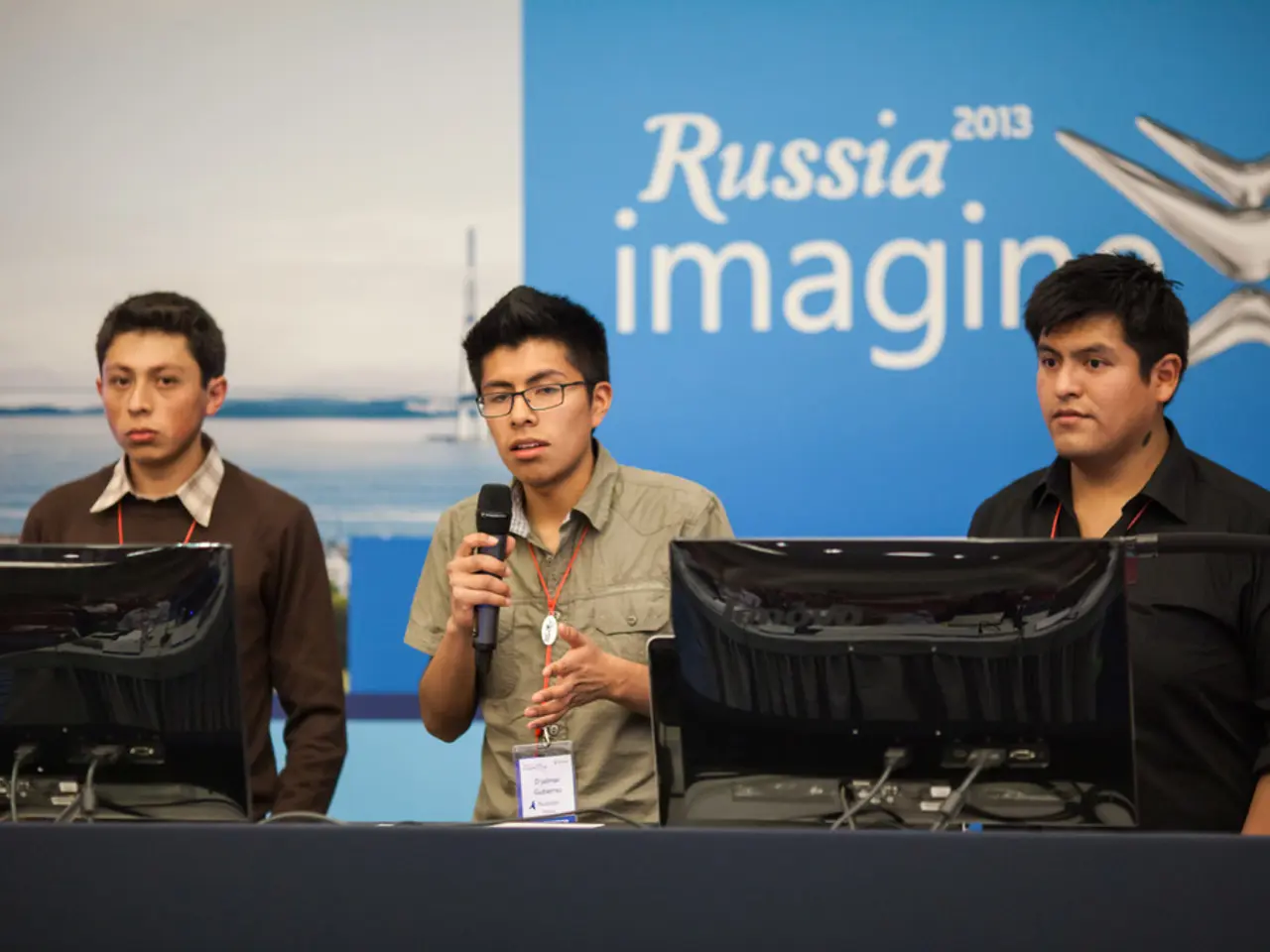Updated Information on PTAB and USPTO - August 2025
The United States Patent and Trademark Office (USPTO) has been busy this July, announcing several significant changes to its patent examination process.
On July 17, 2025, the USPTO released the new AI-based DesignVision tool to its patent examiners for searching prior art. This tool is expected to streamline the patent examination process, making it more efficient and accurate.
In another development, the USPTO expanded its accelerated grant program on July 11, 2025, to allow for accelerated examination in Belize, Guatemala, and the United Arab Emirates. This move is aimed at fostering innovation and promoting economic growth in these countries.
As of July 31, 2025, the USPTO updated its policy on inter partes review (IPR) petitions. The new policy strictly enforces 37 C.F.R. § 42.104(b)(4), requiring that every petition filed on or after September 1, 2025, must explicitly specify where each element of the challenged claim is found in prior art patents or printed publications. This change disallows relying on "general knowledge," including applicant-admitted prior art (AAPA), expert testimony, or common sense, to fill in claim limitations missing from the prior art references themselves.
This policy shift aims to provide clearer notice to patent owners about the legal and factual basis for challenges and to tighten the evidentiary standards for instituting IPRs. The updated enforcement is a significant departure from more flexible prior interpretations followed in 2020 and 2022.
In addition, the USPTO has begun issuing a combined notice of payment deficiency and order to show cause as to why a fine should not be assessed when it makes a preliminary determination that a patent application contains a false assertion or certification of small or micro entity status that resulted in the payment of at least one fee in an unentitled reduced amount.
The Senate has also taken steps to recognise the importance of trademarks in the economy and the role of trademarks in protecting consumer safety. On July 31, 2025, they unanimously agreed to S.Res.314, designating July as "National Anti-Counterfeiting and Consumer Education and Awareness Month."
Moreover, Senators Margaret Wood Hassan and Josh Hawley introduced S.2658, a bill requiring sponsors of drug applications and holders of approved applications to provide certain submissions and communications to the Food and Drug Administration and the USPTO.
In the realm of international intellectual property rights, Acting Director Stewart addressed the World Intellectual Property Organization (WIPO) regarding traditional knowledge, genetic resources, the cost-effectiveness of the Patent Cooperation Treaty (PCT) system, and intellectual property rights on July 9, 2025.
The USPTO has also reopened the comment period for the OECD's Working Party on Countering Illicit Trade (WP-CIT) Draft Voluntary Guidelines for Countering Illicit Trade in Counterfeit Goods on Online Marketplaces, on July 7, 2025.
Several decisions have also been made recently, including the vacating of decisions granting institution in cases such as Samsung Electronics Co., Ltd. v. Headwater Research LLC, Green Revolution Cooling, Inc. v. Midas Green Technologies, LLC, and Samsung Electronics Co., Ltd. v. Mullen Industries LLC.
Other decisions include the remanding for further proceedings in cases like Cirrus Logic, Inc. v. Greenthread, LLC and ZyXEL Communications Corporation v. UNM Rainforest Innovations.
Lastly, Representative Joe Neguse introduced H.R.4570, the Interagency Patent Coordination and Improvement Act of 2025, which aims to establish an interagency task force between the USPTO and the Food and Drug Administration.
The annual limit on accepted requests for prioritized examination has been increased to 20,000, effective July 8, 2025. However, there are no new interim rules as of now.
In a potential future development, the Department of Commerce is considering charging patent holders an additional fee that represents a percentage of the patent's value to raise additional funds, according to a report in the Wall Street Journal on July 28, 2025.
These changes and developments mark a significant shift in the USPTO's patent examination process, aiming to provide clearer notice to patent owners, tighten evidentiary standards, and foster innovation both domestically and internationally.
- The Senate, recognizing the value of trademarks in education-and-self-development and consumer safety, designated July as "National Anti-Counterfeiting and Consumer Education and Awareness Month."
- In the international intellectual property rights sphere, discussions about costs and effectiveness of the Patent Cooperation Treaty (PCT) system, traditional knowledge, and genetic resources were held at the World Intellectual Property Organization (WIPO), showcasing the importance of sports (i.e., global cooperation) in this field.




